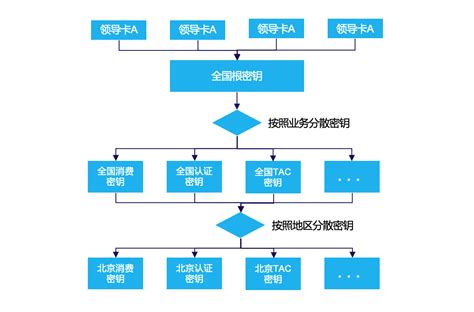Exploring the Intersection of Blockchain and DNS Seed Nodes
In the realm of blockchain technology, the utilization of DNS seed nodes is a crucial component for the functioning and scalability of decentralized networks. Let's delve into how blockchain and DNS seed nodes intersect, their significance, and the potential implications for the future of decentralized systems.
Understanding DNS Seed Nodes
DNS seed nodes serve as initial connection points for new network participants to discover and connect to peers within a decentralized network. These nodes facilitate the bootstrapping process by providing a list of IP addresses of active network nodes. When a user initiates a connection to a blockchain network, their client software queries these DNS seed nodes to obtain a list of available network peers, enabling them to establish connections and participate in network activities such as transaction propagation and consensus.

The Role of Blockchain in DNS Seed Nodes
Blockchain technology introduces novel methods for managing DNS seed nodes, enhancing their reliability, security, and decentralization. By leveraging blockchain, DNS seed nodes can be decentralized and resistant to censorship or manipulation, ensuring a more robust and resilient network infrastructure.
Decentralization:
Traditional DNS seed nodes are centralized, controlled by a single entity or organization, which poses risks such as single points of failure and susceptibility to censorship. By integrating blockchain technology, DNS seed nodes can be distributed across a decentralized network of nodes, reducing reliance on central authorities and enhancing network resilience.Security:
Blockchain's immutable and transparent nature enhances the security of DNS seed node management. By recording DNS seed node information on a blockchain ledger, tampering or malicious manipulation of node lists becomes exceedingly difficult, ensuring the integrity of network discovery mechanisms.Censorship Resistance:
Centralized DNS seed nodes are vulnerable to censorship and manipulation by authorities or malicious actors. Blockchainbased DNS seed nodes, however, are resistant to censorship due to their decentralized nature and cryptographic security features, enabling unrestricted access to network participants regardless of external interference.Potential Applications and Implications
The integration of blockchain technology with DNS seed nodes unlocks a myriad of possibilities and implications across various domains:
1. Decentralized Networking Infrastructure:
Blockchainpowered DNS seed nodes lay the foundation for building decentralized networking infrastructures, enabling the creation of resilient and censorshipresistant communication networks independent of centralized authorities.2. Enhanced Network Security:
By leveraging blockchain's security features, DNS seed node management becomes more robust, reducing vulnerabilities to attacks such as DNS spoofing or hijacking, thereby enhancing overall network security.3. Improved Network Scalability:
Decentralized DNS seed nodes can facilitate the scalability of blockchain networks by efficiently managing peer discovery and connection establishment, thereby supporting increased network participation and transaction throughput.4. Sovereign Identity and Privacy:
Blockchainbased DNS seed nodes can contribute to the development of sovereign identity solutions and privacypreserving technologies, empowering users to maintain control over their digital identities and personal data.Challenges and Considerations
While the integration of blockchain with DNS seed nodes offers numerous benefits, several challenges and considerations must be addressed:
1. Scalability:
Ensuring the scalability of blockchainbased DNS seed node systems to support growing network demands while maintaining efficiency and performance remains a significant challenge.2. Interoperability:
Achieving interoperability between blockchainbased DNS seed node solutions and existing networking infrastructure standards is crucial for seamless integration and adoption.3. Governance and Consensus:
Establishing governance mechanisms and consensus protocols for managing blockchainbased DNS seed nodes requires careful consideration to ensure fairness, transparency, and decentralization.4. Regulatory Compliance:
Adhering to regulatory requirements and compliance standards while maintaining the decentralized nature of blockchainbased DNS seed nodes presents legal and regulatory challenges.Conclusion
The convergence of blockchain technology and DNS seed nodes holds immense potential for revolutionizing network infrastructure, enhancing security, and fostering decentralization. By leveraging blockchain's capabilities, DNS seed node management can be transformed to create robust, censorshipresistant network infrastructures capable of supporting the next generation of decentralized applications and services. However, addressing scalability, interoperability, governance, and regulatory challenges is essential to realizing the full benefits of this transformative technology intersection.
标签: 区块链交易平台 区块链工程 区块链技术通俗讲解 区块链交易系统开发 区块链技术







